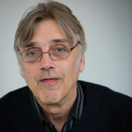 Richard Cerione completed his Ph.D. in Biochemistry at Rutgers University, and was then an NIH postdoctoral fellow with Gordon Hammes at Cornell and a Howard Hughes Institute Fellow with Robert J. Lefkowitz at Duke University. He started his academic career at Cornell, where he is the Goldwin Smith Professor of Pharmacology and Chemical Biology in the Department of Molecular Medicine, and the Department of Chemistry and Chemical Biology. His research is primarily focused on the signaling pathways that regulate cell growth, differentiation and development, with a particular interest in the roles of extracellular vesicles in these biological processes. Project 2 Leader
Richard Cerione completed his Ph.D. in Biochemistry at Rutgers University, and was then an NIH postdoctoral fellow with Gordon Hammes at Cornell and a Howard Hughes Institute Fellow with Robert J. Lefkowitz at Duke University. He started his academic career at Cornell, where he is the Goldwin Smith Professor of Pharmacology and Chemical Biology in the Department of Molecular Medicine, and the Department of Chemistry and Chemical Biology. His research is primarily focused on the signaling pathways that regulate cell growth, differentiation and development, with a particular interest in the roles of extracellular vesicles in these biological processes. Project 2 Leader
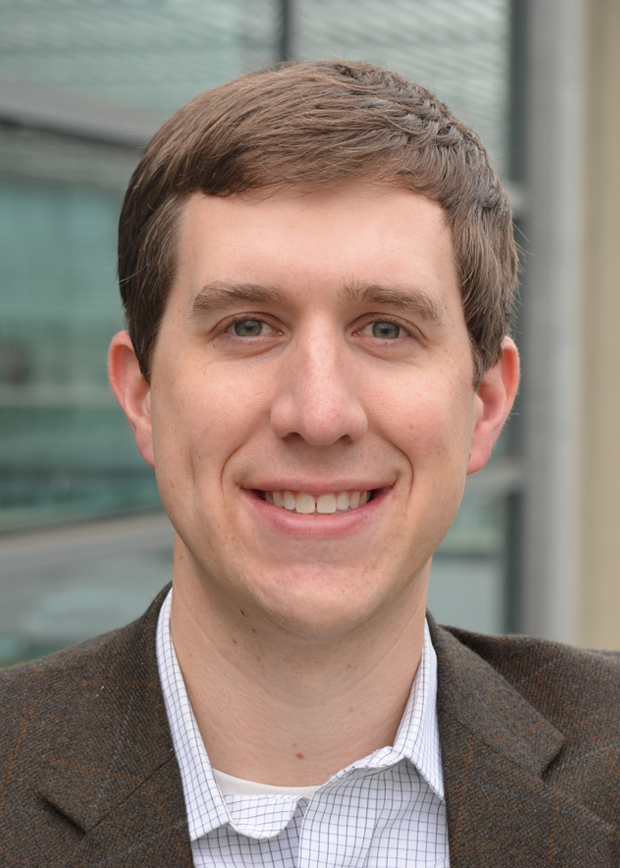 Ben Cosgrove, Ph.D., is an Associate Professor in the Biomedical Engineering Department at Cornell University. He completed his Ph.D. in Bioengineering at the Massachusetts Institute of Technology under the joint supervision of Dr. Doug Lauffenburger and Dr. Linda Griffith. His Ph.D. research established on experimental and computational systems biology tools to elucidate cytokine signaling network mechanisms regulating liver hepatocyte cell-fate decisions, and was supported by a Whitake Foundation Graduate Research Fellowship. Dr. Cosgrove’s postdoctoral research was supervised by Dr. Helen Blau at Stanford University and was focused on engineering ex vivo strategies employing biomimetic hydrogel niche cultures to rejuvenate aged muscle stem cells to treat aging-associated muscle wasting. His postdoctoral research was supported by a Stanford Molecular Imaging Scholars Fellowship and a NIH K99 Pathway-to-Independence Award. Pilot Project 4
Ben Cosgrove, Ph.D., is an Associate Professor in the Biomedical Engineering Department at Cornell University. He completed his Ph.D. in Bioengineering at the Massachusetts Institute of Technology under the joint supervision of Dr. Doug Lauffenburger and Dr. Linda Griffith. His Ph.D. research established on experimental and computational systems biology tools to elucidate cytokine signaling network mechanisms regulating liver hepatocyte cell-fate decisions, and was supported by a Whitake Foundation Graduate Research Fellowship. Dr. Cosgrove’s postdoctoral research was supervised by Dr. Helen Blau at Stanford University and was focused on engineering ex vivo strategies employing biomimetic hydrogel niche cultures to rejuvenate aged muscle stem cells to treat aging-associated muscle wasting. His postdoctoral research was supported by a Stanford Molecular Imaging Scholars Fellowship and a NIH K99 Pathway-to-Independence Award. Pilot Project 4
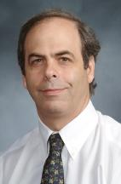 Andrew J. Dannenberg, M.D. is the Henry R. Erle, MD-Roberts Family Professor of Medicine at Weill Cornell Medicine and Associate Director of Cancer Prevention at the Sandra and Edward Meyer Cancer Center. His laboratory has focused on elucidating the mechanisms underlying the inflammation-cancer connection. Currently, a bench to bedside effort is being made to understand the link between obesity and cancer with an emphasis on adipose inflammation. The long-term goal of this research is to develop new strategies to reduce the risk of cancer or inhibit its progression. Dr. Dannenberg has authored more than 200 scientific articles. In 2011, he was awarded the American Association for Cancer Research-Prevent Cancer Foundation award for excellence in cancer prevention research.
Andrew J. Dannenberg, M.D. is the Henry R. Erle, MD-Roberts Family Professor of Medicine at Weill Cornell Medicine and Associate Director of Cancer Prevention at the Sandra and Edward Meyer Cancer Center. His laboratory has focused on elucidating the mechanisms underlying the inflammation-cancer connection. Currently, a bench to bedside effort is being made to understand the link between obesity and cancer with an emphasis on adipose inflammation. The long-term goal of this research is to develop new strategies to reduce the risk of cancer or inhibit its progression. Dr. Dannenberg has authored more than 200 scientific articles. In 2011, he was awarded the American Association for Cancer Research-Prevent Cancer Foundation award for excellence in cancer prevention research.
Matthew DeLisa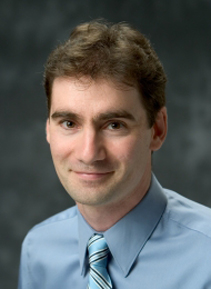 , Ph.D., is a Professor in the Robert Frederick Smith School of Chemical and Biomolecular Engineering at Cornell University. He also recently served as a Gastprofessur at the Swiss Federal Institute of Technology (ETH Zürich) in the Institut für Mikrobiologie. His research focuses on understanding and controlling the molecular mechanisms underlying protein biogenesis — folding and assembly, membrane translocation and post-translational modifications — in the complex environment of a living cell. His contributions to science and engineering include the invention of numerous commercially important technologies for facilitating the discovery, design and manufacturing of human drugs and seminal discoveries in the areas of cellular protein folding and protein translocation. Pilot Project 1
, Ph.D., is a Professor in the Robert Frederick Smith School of Chemical and Biomolecular Engineering at Cornell University. He also recently served as a Gastprofessur at the Swiss Federal Institute of Technology (ETH Zürich) in the Institut für Mikrobiologie. His research focuses on understanding and controlling the molecular mechanisms underlying protein biogenesis — folding and assembly, membrane translocation and post-translational modifications — in the complex environment of a living cell. His contributions to science and engineering include the invention of numerous commercially important technologies for facilitating the discovery, design and manufacturing of human drugs and seminal discoveries in the areas of cellular protein folding and protein translocation. Pilot Project 1
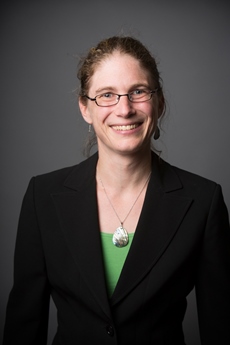
Lara A. Estroff, Ph.D., is currently an Associate Professor of Materials Science and Engineering at Cornell University. She received a B.A. with honors from Swarthmore College (1997), with a major in Chemistry and a minor in Anthropology. She received her Ph.D. in Chemistry from Yale University (2003) for work done in Prof. Andrew D. Hamilton’s laboratory on the design and synthesis of bio-inspired organic superstructures to control the growth of inorganic crystals. Dr. Estroff’s research group at Cornell focuses on bio-inspired materials synthesis, in particular, the study of crystal growth mechanisms in gels and their relationships to biomineralization. Pilot Project 2.
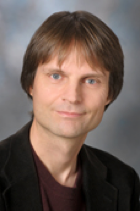
Peter Friedl, M.D., Ph.D., received his M.D. from the University of Bochum in 1992 and his Ph.D. from the McGill University, Montreal in 1996. He became a director of the Microscopical Imaging Centre of the Radboud University Nijmegen Medical Centre, Nijmegen, Netherlands in 2007, and has held a joint faculty position at the University of Texas MD Anderson Cancer Center since 2011. His research interest is the mechanisms and plasticity of cell migration in immune regulation and cancer metastasis, with emphasis on cell-matrix adhesion, pericellular proteolysis and biophysics of cell migration and dynamic cell-cell cooperation during migration (“cell jamming”). His laboratory identified pathways determining diversity and plasticity of cell migration, collective cancer cell invasion, and the contribution of migration pathways to immune defense and cancer resistance.
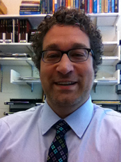 Brian J. Kirby, Ph.D., is a Professor in the Cornell University Sibley School of Mechanical Engineering with a courtesy appointment in Hematology and Medical Oncology at Weill Cornell Medicine. Before joining Cornell, he worked in the Microfluidics Department at Sandia National Laboratories and obtained his B.S. and M.S. from the University of Michigan, and his Ph.D. from Stanford University. He designs microfluidic devices for liquid biopsies and manipulation of cancer cells and vesicles with clinical application primarily to prostate and pancreatic cancers.
Brian J. Kirby, Ph.D., is a Professor in the Cornell University Sibley School of Mechanical Engineering with a courtesy appointment in Hematology and Medical Oncology at Weill Cornell Medicine. Before joining Cornell, he worked in the Microfluidics Department at Sandia National Laboratories and obtained his B.S. and M.S. from the University of Michigan, and his Ph.D. from Stanford University. He designs microfluidic devices for liquid biopsies and manipulation of cancer cells and vesicles with clinical application primarily to prostate and pancreatic cancers.
 Lena F. Kourkoutis, Ph.D., is an Assistant Professor and Rebecca Q. and James C. Morgan Sesquicentennial Faculty Fellow in the Department of Applied Engineering and Physics at Cornell University. Kourkoutis received a Diploma in Physics from the University of Rostock, Germany in 2003, and then moved to Ithaca where she was awarded a PhD in 2009. As a Humboldt Research Fellow Kourkoutis spent 2011-2012 exploring cryo-electron microscopy in the Molecular Structural Biology Group at the Max Planck Institute of Biochemistry in Martinsried, Germany. She returned to Cornell as a Postdoctoral Associate in 2012 and joined the Applied and Engineering Faculty in 2013. The Kourkoutis electron microscopy group focuses on understanding and controlling nanostructured materials, from complex oxide heterostructures to materials for battery and photovoltaic applications to biomaterials. Pilot Project 2
Lena F. Kourkoutis, Ph.D., is an Assistant Professor and Rebecca Q. and James C. Morgan Sesquicentennial Faculty Fellow in the Department of Applied Engineering and Physics at Cornell University. Kourkoutis received a Diploma in Physics from the University of Rostock, Germany in 2003, and then moved to Ithaca where she was awarded a PhD in 2009. As a Humboldt Research Fellow Kourkoutis spent 2011-2012 exploring cryo-electron microscopy in the Molecular Structural Biology Group at the Max Planck Institute of Biochemistry in Martinsried, Germany. She returned to Cornell as a Postdoctoral Associate in 2012 and joined the Applied and Engineering Faculty in 2013. The Kourkoutis electron microscopy group focuses on understanding and controlling nanostructured materials, from complex oxide heterostructures to materials for battery and photovoltaic applications to biomaterials. Pilot Project 2

Jan Lammerding, Ph.D., is an Associate Professor in the Nancy E. and Peter C. Meinig School of Biomedical Engineering and the Weill Institute for Cell and Molecular Biology at Cornell University. After obtaining a Diplom Ingenieur degree in Mechanical Engineering in his native Germany, he completed his Ph.D. in Biological Engineering at the Massachusetts Institute of Technology, studying subcellular biomechanics and mechanotransduction signaling in the laboratories of Roger Kamm and Richard T. Lee (Brigham and Women’s Hospital/Harvard Medical School). Before joining Cornell University, Dr. Lammerding served as a faculty member at Harvard Medical School/Brigham and Women’s Hospital while also teaching in the Department of Biological Engineering at the Massachusetts Institute for Technology. The research in the Lammerding laboratory is focused on developing novel experimental techniques to investigate the interplay between cellular mechanics and function, with a particular emphasis on the cell nucleus and its response to mechanical forces. Project 3 Leader
C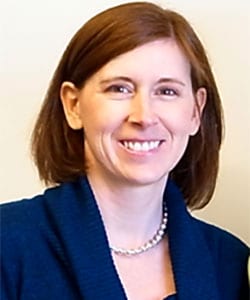 ynthia Leifer, Ph.D. is an Associate Professor in the Department of Microbiology and Immunology at the Cornell College of Veterinary Medicine. The overall theme of her research is to understand how innate immune receptors are regulated. This is important for human health because although most innate immune receptors detect unique molecular structures present on microbes and not in the host, a few detect highly conserved structures such as nucleic acids (DNA and RNA). Transmembrane receptors that detect DNA and RNA belong to a family of innate immune receptors called Toll-like receptors (TLRs). TLR9 is the receptor for DNA and is our model system. We have shown that TLR9 and other nucleic acid sensing TLRs are unique because they are not expressed at the cell surface, that TLR9 traffics through the Golgi to reach endosomes, and have identified sequences in the cytoplasmic tail that regulate these events. Her most recent studies have identified a critical tyrosine that differentially regulates cytokine production, and have uncovered a unique endogenous negative regulatory form of TLR9. She believes that identification of these regulatory events will reveal proteins or pathways that are therapeutic targets for interfering with TLR9 function and will lead to new treatments for autoimmune diseases such as Systemic Lupus Erythematosus and Inflammatory Bowel Disease. Pilot Project 5
ynthia Leifer, Ph.D. is an Associate Professor in the Department of Microbiology and Immunology at the Cornell College of Veterinary Medicine. The overall theme of her research is to understand how innate immune receptors are regulated. This is important for human health because although most innate immune receptors detect unique molecular structures present on microbes and not in the host, a few detect highly conserved structures such as nucleic acids (DNA and RNA). Transmembrane receptors that detect DNA and RNA belong to a family of innate immune receptors called Toll-like receptors (TLRs). TLR9 is the receptor for DNA and is our model system. We have shown that TLR9 and other nucleic acid sensing TLRs are unique because they are not expressed at the cell surface, that TLR9 traffics through the Golgi to reach endosomes, and have identified sequences in the cytoplasmic tail that regulate these events. Her most recent studies have identified a critical tyrosine that differentially regulates cytokine production, and have uncovered a unique endogenous negative regulatory form of TLR9. She believes that identification of these regulatory events will reveal proteins or pathways that are therapeutic targets for interfering with TLR9 function and will lead to new treatments for autoimmune diseases such as Systemic Lupus Erythematosus and Inflammatory Bowel Disease. Pilot Project 5
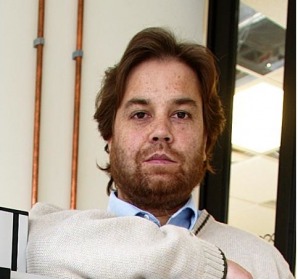 Vivek Mittal, Ph.D. is an internationally recognized cancer researcher is the Director of the Neuberger Berman Lung Cancer Laboratory. His group is actively engaged in understanding mechanisms of tumor progression and metastasis. Dr. Mittal and colleagues have published seminal papers describing the critical role of the tumor microenvironment in tumor growth, initiation of metastasis and development of micrometastasis to life threatening macrometastases. Previously, Dr. Mittal held appointments in the faculties of Cold Spring Harbor Laboratory and State University of New York, Stony Brook. He lectures widely to diverse audiences throughout the world and has been published in leading journals including Science, Nature, Cancer Cell, PNAS, and other leading peer-reviewed journals and text books. His research is supported by funds from the National Cancer Institute and private foundations, and several national and international patents have emerged from his discoveries. Pilot Project 3
Vivek Mittal, Ph.D. is an internationally recognized cancer researcher is the Director of the Neuberger Berman Lung Cancer Laboratory. His group is actively engaged in understanding mechanisms of tumor progression and metastasis. Dr. Mittal and colleagues have published seminal papers describing the critical role of the tumor microenvironment in tumor growth, initiation of metastasis and development of micrometastasis to life threatening macrometastases. Previously, Dr. Mittal held appointments in the faculties of Cold Spring Harbor Laboratory and State University of New York, Stony Brook. He lectures widely to diverse audiences throughout the world and has been published in leading journals including Science, Nature, Cancer Cell, PNAS, and other leading peer-reviewed journals and text books. His research is supported by funds from the National Cancer Institute and private foundations, and several national and international patents have emerged from his discoveries. Pilot Project 3
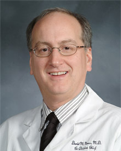 David Nanus, M.D., is the Chief of the Division of Hematology and Medical Oncology at Weill Cornell Medicine and NewYork-Presbyterian Hospital, Professor of Medicine and Urology, and Associate Director for Clinical Services at the Sandra and Edward Meyer Cancer Center. He was a co-investigator in the Cornell University Physical Science-Oncology Centers on the Microenvironment and Metastasis, collaborating with his colleagues at Weill Cornell and Cornell University in Ithaca to develop a microfluidic device that extracts prostate cancer circulating tumor cells. Dr. Nanus is an internationally recognized leader in the treatment and care of patients with genitourinary (GU) cancers. He is actively involved in clinical, translational and basic research in GU malignancies, serving as principle or co-investigator on a variety of grants and clinical research trials that incorporate novel targeted therapies for patients.
David Nanus, M.D., is the Chief of the Division of Hematology and Medical Oncology at Weill Cornell Medicine and NewYork-Presbyterian Hospital, Professor of Medicine and Urology, and Associate Director for Clinical Services at the Sandra and Edward Meyer Cancer Center. He was a co-investigator in the Cornell University Physical Science-Oncology Centers on the Microenvironment and Metastasis, collaborating with his colleagues at Weill Cornell and Cornell University in Ithaca to develop a microfluidic device that extracts prostate cancer circulating tumor cells. Dr. Nanus is an internationally recognized leader in the treatment and care of patients with genitourinary (GU) cancers. He is actively involved in clinical, translational and basic research in GU malignancies, serving as principle or co-investigator on a variety of grants and clinical research trials that incorporate novel targeted therapies for patients.
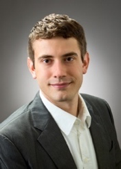 Matthew Paszek, Ph.D., is an Assistant Professor in the Robert Frederick Smith School of Chemical and Biomolecular Engineering at Cornell University. He received his B.S. in chemical engineering from Cornell University, and his Ph.D. in bioengineering from the University of Pennsylvania, where he investigated physical mechanisms underlying cancer progression. As a postdoctoral fellow at the University of California, San Francisco, he began his work on understanding the physical functions of glycans in regulating cell adhesion and signaling. His current work focuses on developing a biophysical toolkit for research in cancer glycobiology, as well as forming a fundamental understanding of the function of the glycocalyx in cancer cell motility and cell-to-cell communication. Pilot Project 1
Matthew Paszek, Ph.D., is an Assistant Professor in the Robert Frederick Smith School of Chemical and Biomolecular Engineering at Cornell University. He received his B.S. in chemical engineering from Cornell University, and his Ph.D. in bioengineering from the University of Pennsylvania, where he investigated physical mechanisms underlying cancer progression. As a postdoctoral fellow at the University of California, San Francisco, he began his work on understanding the physical functions of glycans in regulating cell adhesion and signaling. His current work focuses on developing a biophysical toolkit for research in cancer glycobiology, as well as forming a fundamental understanding of the function of the glycocalyx in cancer cell motility and cell-to-cell communication. Pilot Project 1
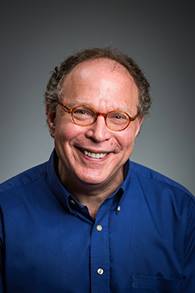 Bob Riter has been instrumental in developing a collaboration between cancer researchers at Cornell University and cancer patients/survivors in the Ithaca area. A particular focus of this collaboration is exposing doctoral students and post-docs in the basic sciences to the human side of cancer. Bob now serves as the Patient Advocate at Cornell University’s Physical Sciences Oncology Center, and is increasingly active in patient advocacy on a national level. He has a master’s degree in health services administration from the University of Michigan, and served for many years as the executive director of the Cancer Resource Center of the Finger Lakes. Education and Outreach
Bob Riter has been instrumental in developing a collaboration between cancer researchers at Cornell University and cancer patients/survivors in the Ithaca area. A particular focus of this collaboration is exposing doctoral students and post-docs in the basic sciences to the human side of cancer. Bob now serves as the Patient Advocate at Cornell University’s Physical Sciences Oncology Center, and is increasingly active in patient advocacy on a national level. He has a master’s degree in health services administration from the University of Michigan, and served for many years as the executive director of the Cancer Resource Center of the Finger Lakes. Education and Outreach
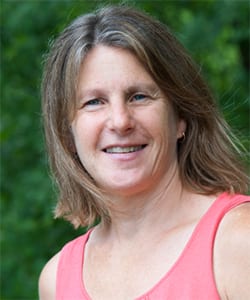 Tracy Stokol, BVSc, PhD, DACVP, is a professor in the Department of Population Medicine and Diagnosis Sciences at the Cornell College of Veterinary Medicine.She is a veterinary clinical pathologist with roles in teaching, professional service and research. As a clinical pathologist, she teaches veterinary students, interns and residents in clinical pathologic-related topics, and also participates in many continuing education seminars. She performs professional diagnostic service for the Cornell University Hospital for Animals and Animal Health Diagnostic Center. As a researcher, She conducts her own clinical applied and basic research and collaborate with other clinicians and researchers at Cornell and other universities. Her main area of research is the role of tissue factor (coagulation factor III) in hemostasis (particularly thrombotic disorders) and cancer metastasis. Pilot Project 5
Tracy Stokol, BVSc, PhD, DACVP, is a professor in the Department of Population Medicine and Diagnosis Sciences at the Cornell College of Veterinary Medicine.She is a veterinary clinical pathologist with roles in teaching, professional service and research. As a clinical pathologist, she teaches veterinary students, interns and residents in clinical pathologic-related topics, and also participates in many continuing education seminars. She performs professional diagnostic service for the Cornell University Hospital for Animals and Animal Health Diagnostic Center. As a researcher, She conducts her own clinical applied and basic research and collaborate with other clinicians and researchers at Cornell and other universities. Her main area of research is the role of tissue factor (coagulation factor III) in hemostasis (particularly thrombotic disorders) and cancer metastasis. Pilot Project 5
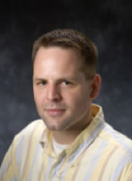
Jeffrey Varner, Ph.D., is a Professor in the Robert Frederick Smith School of Chemical and Biomolecular Engineering at Cornell University. Jeffrey Varner holds a Ph.D degree in Chemical Engineering from Purdue University, where he explored modeling and analysis of metabolic networks in the lab of Prof. Doraiswami Ramkrishna. After a postdoc in the Department of Biology at the ETH-Zurich under the direction of Jay Bailey and a research position at Genencor-DuPont, Palo Alto, CA, Dr. Varner joined the faculty of the Chemical and Biomolecular Engineering department at Cornell University as an Assistant Professor in 2006. In the fall of 2011, Prof. Varner was promoted to Associate Professor with tenure, and in 2016 to the rank of Professor. The Varner lab is interested in modeling and analysis of signal transduction and metabolic networks using kinetic and constraints based modeling techniques, as well as automatic code generation, and model identification using multi-objective optimization. Core 1 Leader
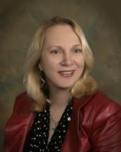 Valerie Weaver, Ph.D., is the Director of the Center for Bioengineering and Tissue Regeneration in the Department of Surgery, and is a Professor in the Departments of Surgery, Anatomy and Bioengineering and Therapeutic Sciences at UCSF in San Francisco, CA. Dr. Weaver has more than 20 years of experience in leading interdisciplinary research in oncology, including the Bay Area Physical Sciences and Oncology program and the UCSF Tumor Microenvironment Brain Program, which merge approaches in the physical/engineering sciences with cancer cell biology and emphasize the role of the tumor microenvironment. Dr. Weaver has been recognized for her research and leadership through receipt of several awards, including the Department of Defense Breast Cancer Research Program Scholar award in 2005 and Scholar expansion award in 2013 for exceptional creativity in breast cancer research, and the American Society for Cell Biology-Women in Cell Biology Midcareer award for sustained excellence in cell biology research in 2014. Most recently she was elected as the chair of the American Association for Cancer Research Tumor Microenvironment Network working group in 2015. Her research program focuses on the contribution of force – cell-intrinsic as well as extracellular matrix – to breast, pancreatic and glioblastoma tumor development and treatment.
Valerie Weaver, Ph.D., is the Director of the Center for Bioengineering and Tissue Regeneration in the Department of Surgery, and is a Professor in the Departments of Surgery, Anatomy and Bioengineering and Therapeutic Sciences at UCSF in San Francisco, CA. Dr. Weaver has more than 20 years of experience in leading interdisciplinary research in oncology, including the Bay Area Physical Sciences and Oncology program and the UCSF Tumor Microenvironment Brain Program, which merge approaches in the physical/engineering sciences with cancer cell biology and emphasize the role of the tumor microenvironment. Dr. Weaver has been recognized for her research and leadership through receipt of several awards, including the Department of Defense Breast Cancer Research Program Scholar award in 2005 and Scholar expansion award in 2013 for exceptional creativity in breast cancer research, and the American Society for Cell Biology-Women in Cell Biology Midcareer award for sustained excellence in cell biology research in 2014. Most recently she was elected as the chair of the American Association for Cancer Research Tumor Microenvironment Network working group in 2015. Her research program focuses on the contribution of force – cell-intrinsic as well as extracellular matrix – to breast, pancreatic and glioblastoma tumor development and treatment.
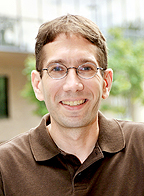 Robert S. Weiss, Ph.D. is aProfessor of Molecular Genetics in the Department of Biomedical Sciences at Cornell University. He received an A.B. in Biology from Wabash College in 1992 and a Ph.D. in Molecular Virology from Baylor College of Medicine in 1997. He then trained as a postdoctoral fellow in the Department of Genetics at Harvard Medical School with support from an American Cancer Society postdoctoral fellowship. In 2002, Bob joined the faculty of Cornell University. He lectures in the core veterinary curriculum, teaches a graduate course on genome maintenance mechanisms, and leads a research program aimed at dissecting how mammalian cells maintain genomic stability, using mouse models and an array of genetic, molecular, cell biological, and genomic technologies. Education and Outreach Leader
Robert S. Weiss, Ph.D. is aProfessor of Molecular Genetics in the Department of Biomedical Sciences at Cornell University. He received an A.B. in Biology from Wabash College in 1992 and a Ph.D. in Molecular Virology from Baylor College of Medicine in 1997. He then trained as a postdoctoral fellow in the Department of Genetics at Harvard Medical School with support from an American Cancer Society postdoctoral fellowship. In 2002, Bob joined the faculty of Cornell University. He lectures in the core veterinary curriculum, teaches a graduate course on genome maintenance mechanisms, and leads a research program aimed at dissecting how mammalian cells maintain genomic stability, using mouse models and an array of genetic, molecular, cell biological, and genomic technologies. Education and Outreach Leader
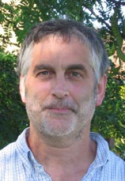
Warren R. Zipfel, Ph.D., is an Associate Professor in the Nancy E. and Peter C. Meinig School of Biomedical Engineering at Cornell University. He obtained his Ph.D. at Cornell, studying the photophysics of photosynthesis using time-resolved laser spectroscopy. He later worked as a Research Associate in Applied and Engineering Physics under Watt Webb in the area of laser-scanning microscopy, during which time he was involved in the development of multiphoton microscopy at Cornell. His current research focuses on instrumentation and application developments in the areas of laser-scanning microscopy, fluorescence lifetime imaging (FLIM), super-resolution microscopy and single molecule level analysis of biological processes, which his lab applies to studies in cancer biology and transcriptional control. Core 2 Leader